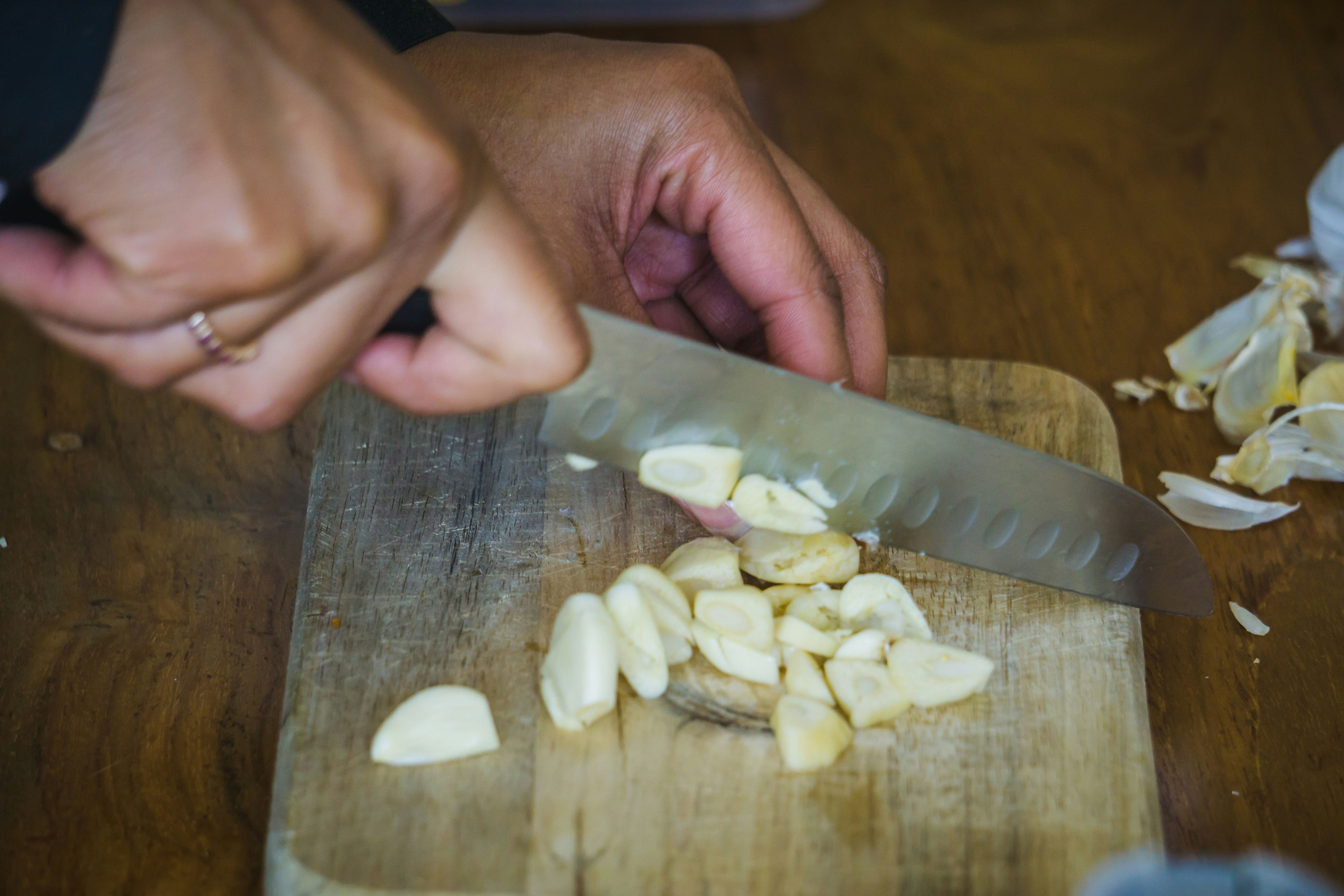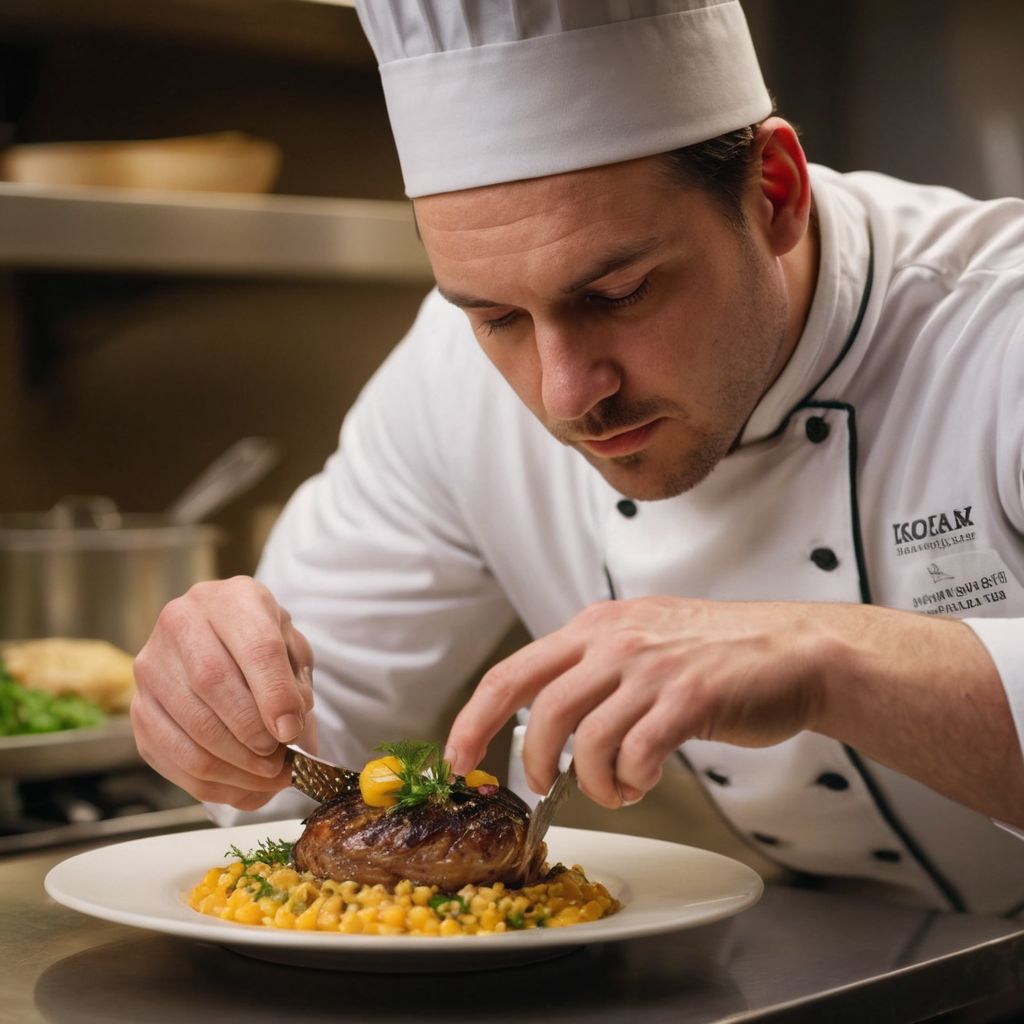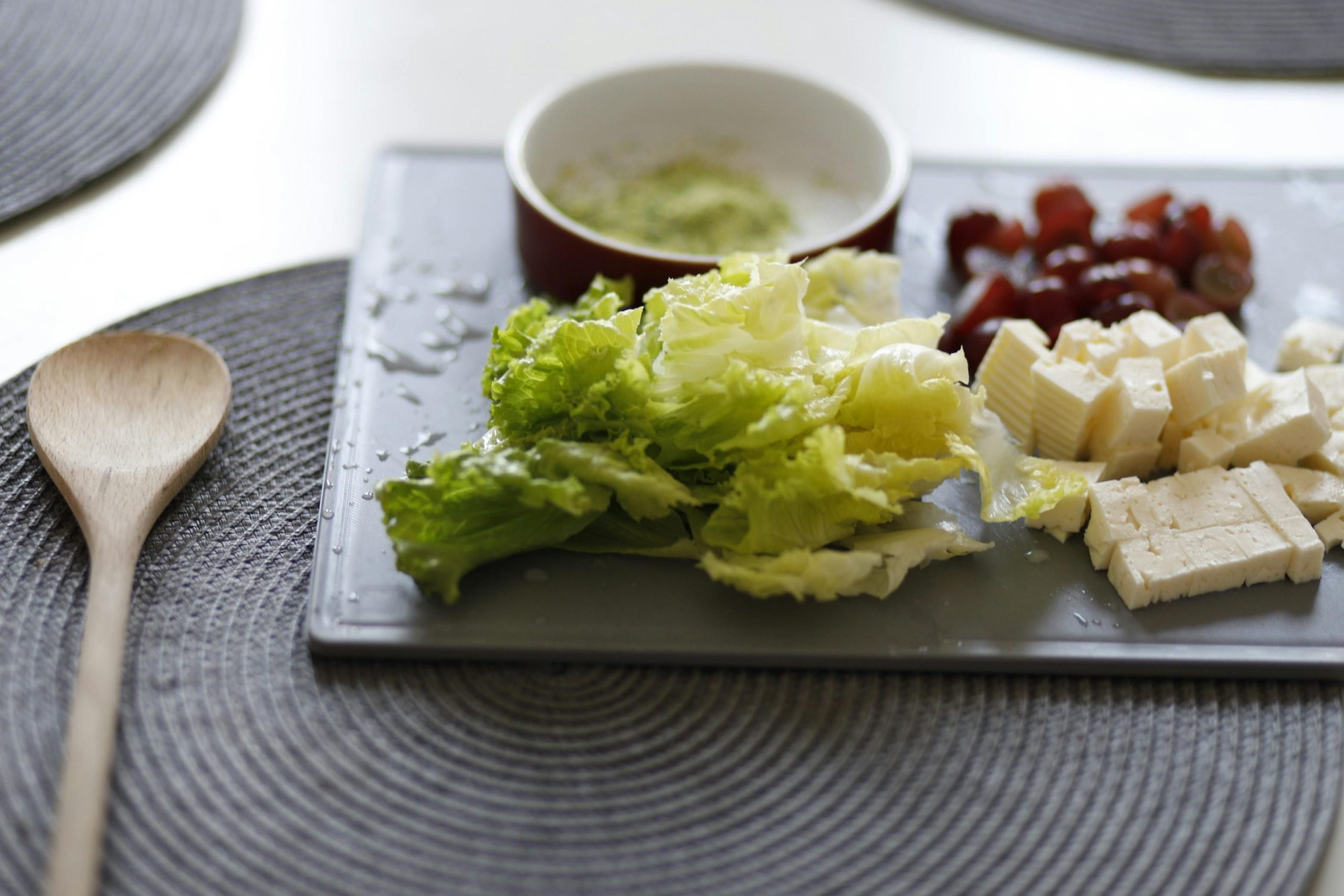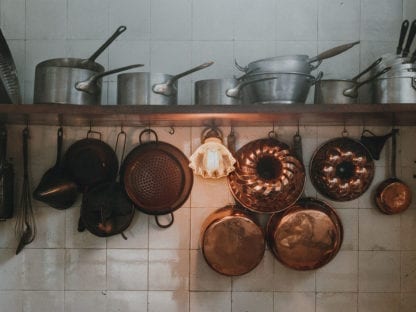Have you ever dreamed of turning your love for cooking into a career?
The journey from a passionate cook to a culinary professional can often seem daunting, filled with uncertainties about where to start.
Course cookery offers a structured pathway, combining practical skills with academic knowledge, to master the culinary arts and secure a successful future in the industry.
This comprehensive guide will explore the foundational importance of learning in course cookery, the transformation of passion into profession, the impact of culinary school rankings, and the role of cutting-edge facilities and faculty in shaping your culinary career, along with inspiring community stories and an overview of various culinary programs.
The Foundation of Success: Learning in Course Cookery

Learning in course cookery is more than just mastering recipes; it’s a comprehensive journey that equips aspiring chefs with the essential skills needed for a successful career in the culinary arts. From understanding the science behind cooking techniques to the art of plating dishes, cookery courses provide a structured foundation that is crucial for anyone looking to excel in this competitive industry.
Moreover, cookery courses offer exposure to a wide range of cuisines and cooking methods, fostering a deep appreciation for the culinary arts. This education is not only about becoming proficient in cooking but also about developing a holistic understanding of food safety, nutrition, and kitchen management. These elements are fundamental in shaping well-rounded professionals who are prepared to tackle the challenges of the culinary world.
From Passion to Profession: The Culinary Journey
Transforming a passion for food into a profession is a dream for many, and it begins with the right education. Culinary arts offer a plethora of opportunities, from working in top restaurants to exploring creative roles like pastry chef or caterer. The first step in this culinary journey is choosing a path that aligns with your interests and aspirations.
Engaging in cookery courses or attending a culinary school can significantly enhance your skills and knowledge. These educational platforms provide:
- A supportive learning environment
- Exposure to various cooking techniques and cuisines
- Opportunities to develop presentation and taste refinement skills
This foundation is crucial for anyone aiming to make a significant impact in the culinary world.
Mastering the Craft: Securing Your Culinary Future

Mastering the craft of cookery is an ongoing process that goes beyond initial training. The culinary industry is dynamic, with new trends and technologies emerging constantly. Aspiring chefs must embrace continual learning to stay relevant and innovative. This includes keeping abreast of:
- Technological advancements in cooking
- Sustainability practices
- Emerging cuisines and dietary trends
Securing your culinary future also involves building a professional network and gaining real-world experience. Participating in internships, competitions, and industry events can provide valuable exposure and opportunities to learn from seasoned chefs. This hands-on experience, coupled with a solid foundation in culinary arts, is key to carving out a successful career path in this vibrant industry.
The Impact of Rankings on Your Culinary Education
When considering a culinary education, the impact of school rankings cannot be overstated. These rankings often reflect the quality of education, faculty expertise, and the overall reputation of the institution. For aspiring chefs, attending a highly ranked culinary school can offer several advantages, including:
- Enhanced learning experiences through state-of-the-art facilities
- Opportunities to learn from top-tier culinary professionals
- Greater visibility in the competitive culinary job market
However, it’s essential to approach rankings with a critical mindset. While they provide a useful starting point, they should not be the sole factor in your decision-making process. Consider other aspects such as the curriculum’s relevance to your culinary aspirations, the school’s location, and the practical experiences on offer. Ultimately, the right culinary school for you is one that aligns with your personal and professional goals, regardless of its position in the rankings.
Cutting-Edge Facilities: Elevating Your Culinary Skills
Cutting-edge facilities play a pivotal role in elevating your cookery skills. These modern amenities not only enhance the learning experience but also ensure that students are well-versed with contemporary culinary tools. By training in state-of-the-art kitchens, students gain hands-on experience with advanced equipment, from precision ovens to high-speed blenders, which are essential for mastering modern cooking techniques.
Furthermore, access to innovative technologies, such as virtual reality simulations and digital recipe libraries, empowers students to explore a wide range of cuisines and culinary histories beyond the physical classroom. This immersive environment fosters a deeper understanding of the culinary arts, equipping students with the skills needed to excel in today’s dynamic food industry. Cooking classes in such cutting-edge facilities are more than just learning to cook; they are about becoming proficient in the use of modern cookery skills and technologies.
The Role of Faculty in Shaping Culinary Minds
The role of faculty in culinary schools is pivotal in shaping the future of aspiring chefs. These educators bring a wealth of professional experience and knowledge into the classroom, directly influencing the quality of culinary education. Faculty members are not just teachers; they are mentors who guide students through the complexities of the culinary world. They share insights from their own careers, offer feedback on students’ work, and encourage exploration and creativity. This personal engagement helps students to not only master technical skills but also to develop their unique culinary voice.
Furthermore, faculty in culinary schools often have ongoing connections with the industry, which can benefit students in numerous ways. These connections can lead to:
- Internship opportunities
- Insights into current culinary trends
- Networking opportunities with professionals and alumni
Such engagement with the industry ensures that the curriculum remains relevant and that students are exposed to the realities of the culinary world. In essence, faculty members play a crucial role in bridging the gap between culinary education and professional practice, ensuring students are well-prepared for their future careers.
Community Stories: Inspiration from the Culinary World

Within the culinary world, inspiring stories abound, each serving as a beacon of motivation for aspiring chefs. From overcoming personal hurdles to achieving remarkable success, these narratives highlight the transformative power of culinary education. For instance:
- A young chef who turned a chronic injury into a source of strength, focusing on adaptive cooking techniques.
- A culinary student who, despite financial difficulties, secured scholarships and now champions sustainable cooking practices.
These stories not only showcase the resilience and passion inherent in the culinary arts but also underscore the supportive community that culinary schools foster. Mentorship and camaraderie among students and faculty play a crucial role in navigating challenges and celebrating successes. Such a nurturing environment encourages continuous learning and growth, proving that the journey through culinary education is as rewarding as the destination.
Exploring Culinary Programs: The Value of Brochures
Brochures play a crucial role in providing prospective students with a more in-depth understanding of culinary programs. These informative materials offer detailed insights into the curriculum, including the variety of courses available, from foundational cookery to specialised subjects like pastry arts or international cuisine. Additionally, brochures highlight the unique features of each program, such as state-of-the-art facilities, distinguished faculty, and opportunities for hands-on learning. This wealth of information helps students to make informed decisions about their culinary education journey.
Beyond the curriculum, brochures also shed light on the additional benefits of enrolling in a culinary program. These include:
- Networking opportunities with industry professionals and alumni
- Details on internships and real-world experience
- Information on scholarships and financial aid
Such details are invaluable for students aiming to carve a successful career in the culinary world. By offering a comprehensive overview, brochures serve as a vital tool in exploring the various pathways within culinary arts and in understanding how each program can help to achieve personal and professional goals.
Bachelor’s Degrees in Culinary Arts: A Pathway to Excellence
Bachelor’s degrees in culinary arts are designed to blend practical kitchen skills with essential business and management knowledge. This dual focus prepares aspiring chefs and food entrepreneurs for the challenges of the culinary world. By offering specialized pathways like Culinary Arts, Pastry & Chocolate Arts, and Vegetarian Culinary Arts, these programs cater to diverse interests and career goals.
The structure of these programs is meticulously crafted to ensure an equal balance between hands-on kitchen experience and academic learning. Students spend significant time mastering culinary techniques in state-of-the-art kitchens, alongside classroom sessions that cover topics such as nutrition, food safety, and business management. This comprehensive approach equips graduates with the skills needed to excel in both entrepreneurial ventures and top culinary positions.
Mastering Culinary Arts: The Path to Leadership
Master’s degree programs in culinary arts and culinary business management are stepping stones for those aiming to reach leadership positions within the food industry. These programs delve deeper into specialized cuisines or focus on the managerial aspects of running culinary ventures, making them ideal for chefs and entrepreneurs alike.
Beyond enhancing culinary skills, these programs emphasize:
- Strategic business management
- Advanced culinary techniques
- Innovation in food design and presentation
This educational path not only sharpens practical abilities but also fosters a deeper understanding of the culinary business landscape, preparing graduates for successful careers as gourmet chefs, restaurant managers, or food entrepreneurs.
Swiss Diplomas in Culinary Arts: A Mark of Excellence
Swiss diplomas in culinary and pastry arts are renowned for their rigorous training and excellence. These programs, often spanning one to two years, offer an immersive experience in Swiss and European culinary traditions. Students engage in extensive practical training, mastering everything from basic cooking techniques to advanced dessert crafting.
The value of a Swiss diploma lies in its:
- Hands-on approach to learning
- Internship opportunities in Switzerland and abroad
- Emphasis on blending tradition with innovation
Graduates of these programs are highly sought after in the culinary world, equipped with the skills to excel in high-end gastronomy and the art of pastry making.
Business and Hospitality: The Culinary Arts Synergy
The synergy between business and hospitality in culinary arts is a vital component for anyone aiming to carve a successful career in the culinary world. Understanding the business aspect is just as crucial as mastering the art of cooking itself. This integration is designed to equip students with a comprehensive skill set that includes menu planning, cost control, and customer service, ensuring they are well-prepared to meet the industry’s demands.
Culinary arts programs that focus on business and hospitality teach students how to create memorable dining experiences while managing the practicalities of running a culinary establishment. Key areas of focus include:
- Effective communication and leadership skills
- Financial management and marketing strategies
- Sustainability and ethical practices in the kitchen
By blending these disciplines, graduates are not only proficient chefs but also capable managers and entrepreneurs in the hospitality industry.
Exploring Diverse Paths: Other Culinary Programs
Beyond traditional culinary arts programs, many institutions offer a variety of related courses that cater to diverse interests and career goals within the hospitality industry. These programs range from pastry arts and food technology to restaurant management and food service management. Each program is designed to provide students with specialized knowledge and skills, opening up a wide array of career paths.
For those interested in exploring different culinary domains, here are some options to consider:
- Pastry Arts: Focuses on baking and dessert making, perfect for aspiring pastry chefs.
- Food Technology: Combines culinary skills with scientific principles, ideal for those interested in food production and safety.
- Hospitality Management: Prepares students for managerial roles in restaurants, hotels, and other food service establishments.
These diverse programs ensure that students can find a culinary path that aligns with their passions and career aspirations.
Elevate Your Culinary Journey with INDULGE: Discover Our Tours
Elevating your culinary journey involves not just mastering the basics but also immersing yourself in the rich tapestry of global cuisines and cooking techniques. INDULGE’s curated culinary tours and exclusive dining experiences in Zurich offer a unique opportunity to do just that. By participating in these tours, you gain:
- Insight into the local food history and international cuisine
- Access to exclusive Wine & Dine experiences
- An introduction to famous Swiss specialties through a signature walking tour in Old Town Zurich
These offerings by INDULGE are designed to enhance your understanding and appreciation of course cookery, bridging the gap between traditional culinary education and real-world gastronomic experiences. Whether you’re a food enthusiast, a tourist, or a local looking to explore Zurich’s culinary landscape, INDULGE’s tours provide an unparalleled opportunity to:
- Deep dive into Zurich’s culinary history
- Experience curated food experiences led by local experts
- Enjoy a blend of Swiss culinary specialties and international food scenes
For those looking to elevate their culinary journey, exploring INDULGE’s tours is a must.
Frequently Asked Questions
What is cookery as a course?
Cookery as a course is a comprehensive educational journey that equips aspiring chefs with essential skills needed for a successful career in the culinary arts. It encompasses mastering recipes, understanding the science behind cooking techniques, the art of plating dishes, and developing a holistic understanding of food safety, nutrition, and kitchen management. These courses offer a structured foundation crucial for excelling in the competitive culinary industry, including exposure to a wide range of cuisines and cooking methods.
Which cooking course is best?
The best cooking course depends on your personal and professional goals, as well as your interests and aspirations. Culinary arts offer a plethora of opportunities, and engaging in cookery courses or attending a culinary school can significantly enhance your skills and knowledge. When choosing a course, consider the curriculum’s relevance to your culinary aspirations, the school’s location, and the practical experiences on offer. Bachelor’s degrees, Master’s degrees, and Swiss diplomas in culinary arts are among the options, each catering to different career paths within the culinary world.
What is the subject of cookery?
The subject of cookery covers a broad spectrum of knowledge and skills essential for a career in the culinary arts. It includes mastering various cooking techniques and cuisines, understanding the science behind cooking, the art of plating, food safety, nutrition, and kitchen management. Additionally, it encompasses learning about sustainability practices, emerging cuisines, dietary trends, and the business and hospitality aspects of running a culinary establishment.
Why study culinary arts in Switzerland?
Studying culinary arts in Switzerland is highly regarded due to the country’s reputation for rigorous training and excellence in culinary and pastry arts. Swiss culinary programs, often spanning one to two years, offer an immersive experience in Swiss and European culinary traditions, combining extensive practical training with an emphasis on blending tradition with innovation. The value of a Swiss diploma lies in its hands-on approach to learning, internship opportunities both in Switzerland and abroad, and the preparation it provides students to excel in high-end gastronomy and the art of pastry making.








